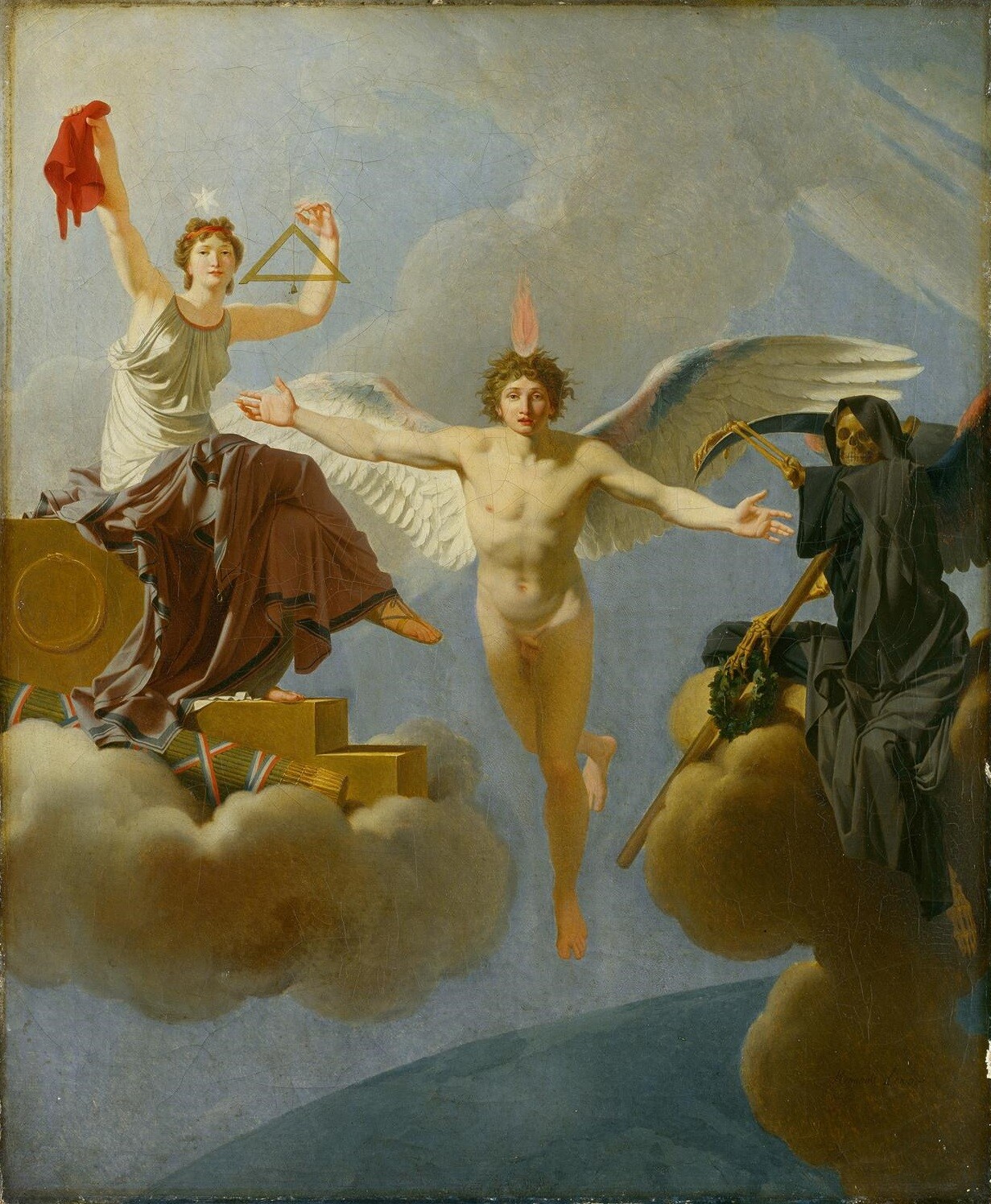Freedom?
»Liberté, égalité, fraternité«, these were the ideals of the French revolution. The painting Jean-Baptiste Regnault presented at the Paris Salon in 1795 illustrates the consequences of this claim in a dramatic way: on the left sits the personification of the French Revolution, on the right is death with his scythe and at the centre, turned toward us, floats the Genius of France.
His posture suggests the call for making a clear decision. But what is freedom? How important is it? The answer to this in 1793 was unmistakable: freedom or death. 227 years later, the hard-won freedom – in democracies at least – is a general right that is not questioned in its significance for each individual: freedom from constraint and from conventions, but also the freedom to develop one’s own personality and to do what one would like to do. Freedom implies many things – personally and politically. But it always also implies making a choice – on the one hand having the possibility to choose, yet on the other also being responsible for making a choice for or against something. Freedom is thus one of the most complex and consequential terms of our time. It is central to our European self-understanding and yet by no means self-evident. Even if it must not necessarily be fought for all the time, it certainly must be defended time and again, especially in view of recent developments and increasing nationalisms. So what does freedom actually mean, and how far are we – each one of us and all of us as a community – willing to go for it?«
Ifee Tack (Assistant curator)
